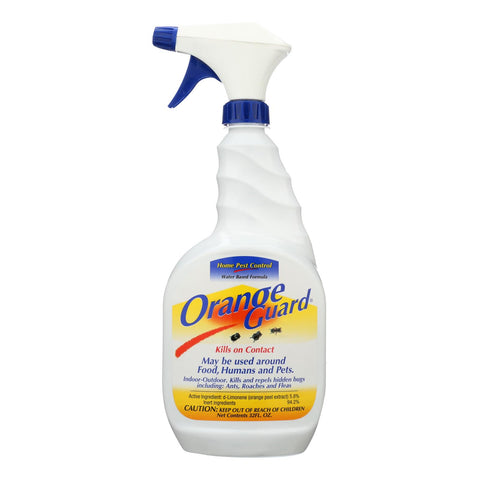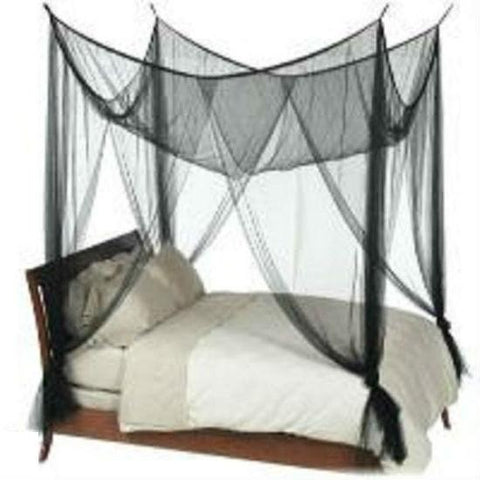2 products
Types of Eco-Friendly Pest Control
Below are some eco-friendly pest control solutions you can use at home.
Organic Control
Methods include bait stations, traps, and sprays to target animals like ants, cockroaches, mosquitoes, flies, and rats while reducing hazards to humans, pets, and plants. Insecticidal soaps and oils are effective alternatives to chemicals and are safe to use.
Physical Control
It uses barriers and traps to manage unwanted animal problems. This technique includes sealing cracks and crevices to block entry points, installing screens on windows and doors, and using sticky traps to capture crawling pests.
Natural Pest-Repellent Spray
This includes using natural pest-repellent sprays made by mixing one teaspoon of cinnamon, cayenne, or cloves with a cup of water. Best applied on window sills and door frames to deter insects without harming the environment. This eco-friendly solution replaces chemical repellents with aromatic spices.
Biological Control
This chemical-free method employs natural predators, enemies, or pathogens to curb pest numbers, providing a sustainable and eco-friendly alternative to conventional methods. Leveraging the natural balance of ecosystems, the biological method promotes long-term management solutions without harmful chemicals.
Pros and Cons of Using Eco-Friendly Pest Control
Discover some of the advantages and disadvantages of eco-friendly pest management methods.
|
Pros |
Cons |
|
Environmentally Friendly: They typically use natural or organic materials, which are less harmful to the environment. |
Limited Effectiveness: These methods may not be as effective in eradicating unwanted animals, especially in severe infestations. |
|
Safe for Humans and Pets: Without the use of electricity, these methods are generally safer for households with children and pets. |
Time-Consuming: Manual methods like traps and barriers can be labor-intensive and require regular upkeep. |
|
Cost-Effective: Typically cheaper as they don't require electricity or frequent replacement. |
Short-Term Solution: These methods may offer temporary relief rather than a permanent solution. |
Eco-Friendly and Natural Pest Control Options
Below are some options you can use at home.
Essential Oil Sprays
Essential oils can effectively deter unwanted animals. Prepare a solution by combining water with 5-10 drops of targeted essential oils in a spray bottle for each application. Spray affected areas or soak cotton balls and place them where they are seen:
-
Roaches: Tea tree or eucalyptus
-
Ants: Spearmint, peppermint, or lemon
-
Flies: Rosemary, peppermint, eucalyptus, or basil
-
Mosquitoes: Peppermint, lemongrass, or tea tree
-
Spiders: Spearmint or peppermint
-
Fleas: Lavender, lemongrass, or peppermint
Fresh Herbs
This solution repels insects, especially mosquitoes. For outdoor use, add rosemary or sage to a barbecue or fire pit to keep mosquitoes away. Indoors, place basil plants to deter flies.
Coffee Grounds
Sprinkle used coffee grounds around your home's perimeter to repel pests, particularly ants. The grounds are a natural deterrent and can kill ants on contact.
Citronella
Citronella isn't just for outdoor candles. Use citronella-scented sachets in your kitchen to repel moths and roaches.
White Vinegar
Mix two cups of water with a ¼ cup of white vinegar and a few drops of peppermint or eucalyptus oil. Use this solution to clean areas where you've seen ants, effectively disrupting their trails.
Why choose us
Eco-friendly pest management methods offer effective and natural solutions for managing insects and rodents both indoors and outdoors. By using organic, biological, physical, and natural spray and traps, homeowners can protect their spaces without harming the environment. These strategies not only preserve health but also promote sustainability. Implementing a combination of these methods will ensure a safer and more balanced ecosystem in and around your home.


